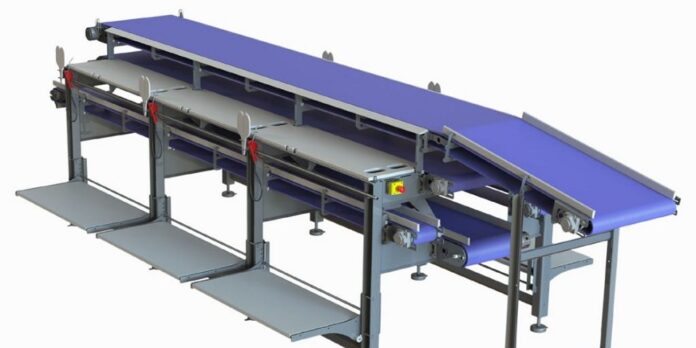Fish processing machines are designed and built for fish farms, fish processors, fish markets, or fish retailers. These automated machines can assist with tasks such as cleaning fish, filleting fish, grading fish by size and weight, deboning fish, sorting fish into bins, and packaging fish.
When choosing a fish processing machine, one must take into account the size, material, kind, and production rate. Fish come in a variety of shapes, sizes, and textures, hence different machinery is needed for different fish varieties. The fish processors’ required production rate must also be supported by the fish processing equipment.
Benefits of Fish Processing Machine
- With these processing machines, fish processors can reduce labor costs, improve food safety and quality, increase efficiency, and save time.
- These machines are designed to take care of the most labor-intensive tasks in fish processing such as filleting, scaling, and skinning.
- Additionally, processing machines help to automate many aspects of fish handling including cleaning, portioning, and packaging fish for retail sale.
Types of Machines Available
Fish processing equipment comes in a variety of designs, from manual to automated systems that can be applied to both small- and large-scale commercial fish production. These devices are made to carry out operations like deboning fish fillets, portioning fish, filleting fish into steaks, grinding fish into fishmeal, and packaging fish for retail sales. Even some machines are built to carry out each of these tasks at once.
The most commonly used processing machines are filleting machines, fish skinning machines, fish cleaning machinery, fish grading machinery, fish sorting machinery, and packaging machinery. You can choose a type based on your needs.
How to Buy Fish Processing Machine?
Fish processing is a crucial procedure for your company, whether you run a fish processing plant, are a fish processor, or sell fish. However, it also necessitates a substantial expenditure on equipment, which can be expensive and time-consuming to learn how to use. Therefore, prior to purchasing a fish machine, the study is crucial.
Here are three main factors to consider when shopping for processing machines:
Automation Level
Depending on the type and size of fish that you process, you’ll need a processing machine with varying levels of automation. Some machines offer full-scale automation while others may be manually operated. You should consider what your fish processing needs are to make sure you pick the right processing machine.
Automated machinery can reduce labor costs dramatically by eliminating the need for many manual tasks such as cutting fish into portions, filleting fish into steaks, grinding fish into fishmeal, and packaging fish for retail sale. These machines also help improve food safety and product consistency by reducing the risk of contamination and ensuring fish are processed in the same way each time.
Cost
Fish processing machines can range from a few hundred dollars for manual models to tens of thousands of dollars for fully automated units. Your budget should determine which fish machine is suitable for your business.
Quality
Cheap fish processing machines may be tempting, but they may not provide the level of reliability and performance that you need. You should research fish machine manufacturers to make sure you buy one from a reputable company with a good track record for quality products.
Conclusion
For fish processors aiming to cut labor costs, enhance food safety and product quality, boost productivity, and save time, fish processing machines can be a terrific investment. Fish processors can swiftly and consistently process fish with automated fish processing equipment to generate high-quality fish products. This equipment will be the finest investment for you if you own a fish business.









